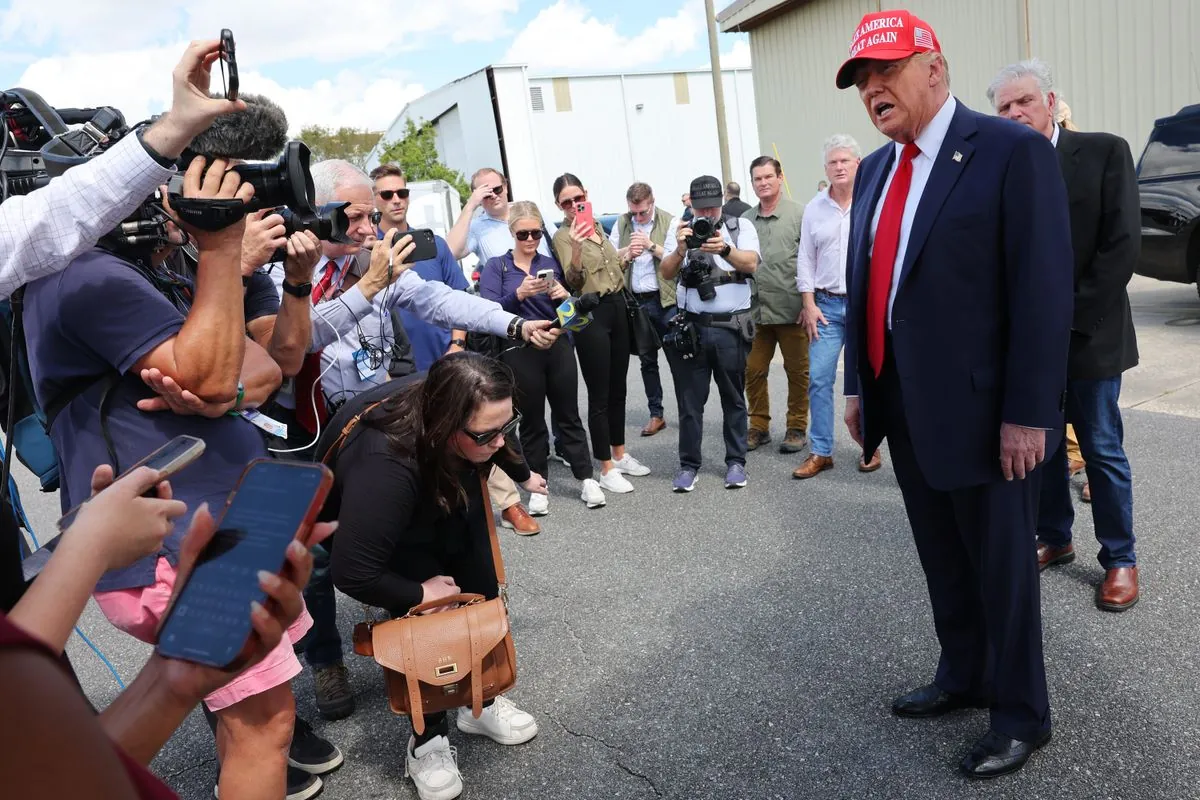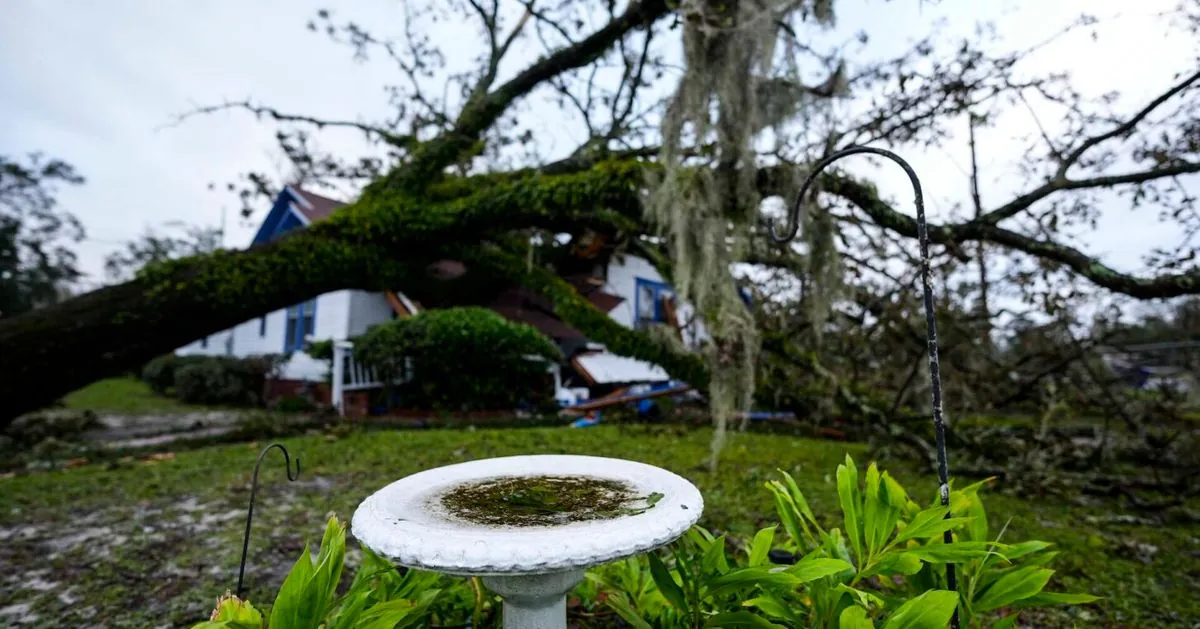Trump's Hurricane Visit Sparks Debate on Disaster Politics
Former President Trump's visit to hurricane-hit Georgia raises questions about disaster response politicization. Analysts discuss the potential impact on the upcoming presidential election as federal aid efforts continue.

In a move that has sparked debate among political analysts, former President Donald Trump recently visited Valdosta, Georgia, a city severely impacted by Hurricane Helene. This visit, occurring just over a year before the November 5, 2024, presidential election, has drawn attention to the intersection of natural disasters and political campaigning.
Trump's visit to the storm-ravaged area is unusual for a candidate not currently holding office. Typically, presidents and presidential hopefuls avoid immediate visits to disaster zones to prevent interference with rescue efforts and resource allocation. However, Trump claimed to have brought supplies and partnered with a relief organization, positioning himself as actively involved in the recovery process.
Political experts suggest that Trump is attempting to leverage the hurricane's aftermath to gain an advantage in his campaign against Vice President Kamala Harris, the Democratic nominee. Andrew Reeves, a professor at Washington University in St. Louis, noted that natural disasters can significantly impact U.S. politics and potentially alter the course of elections.

The Federal Emergency Management Agency (FEMA) reports that over 3,500 federal workers are currently engaged in response efforts across affected states. This aligns with the agency's role in coordinating disaster response, as authorized by the Stafford Act, which empowers the president to declare major disasters and emergencies.
It's worth noting that battleground states like Georgia and North Carolina, both hit by Hurricane Helene, play crucial roles in determining election outcomes. The Electoral College system, rather than the popular vote, ultimately decides the winner of U.S. presidential elections, making these states particularly significant.
President Joe Biden and Vice President Harris have announced plans to visit the affected areas soon. Biden is scheduled to tour North Carolina on October 3, 2024, with visits to Georgia and Florida to follow. The administration may also request a special congressional session to approve additional disaster aid funding.
"While Biden and Harris abandon Americans in times of crisis, President Trump leads."
This statement, however, contradicts reports from Georgia's Republican Governor Brian Kemp, who confirmed receiving a call from President Biden offering federal assistance.
The politicization of disaster response is not unprecedented in U.S. history. Past administrations have seen their approval ratings significantly impacted by their handling of natural disasters. For instance, President George W. Bush's response to Hurricane Katrina in 2005 led to a sharp decline in his popularity.
As the Atlantic hurricane season, which officially runs from June 1 to November 30, continues, the political implications of disaster response remain a focal point. With climate change expected to increase the intensity and frequency of hurricanes, the intersection of natural disasters and political strategy is likely to become an increasingly important factor in future elections.
The upcoming presidential election on November 5, 2024, will undoubtedly be influenced by how candidates and current officials respond to these challenges. As federal aid efforts continue and the full extent of Hurricane Helene's impact becomes clear, voters will be watching closely to see how potential leaders handle the crisis.


































